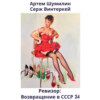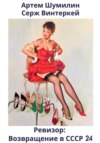Читать книгу: «Travels in North America, From Modern Writers», страница 23
About midnight of the 19th, Sir Thomas Smith's Sound was distinctly seen. Captain Ross considered the bottom of this sound to have been eighteen leagues distant; but its entrance, he says, was completely blocked up by ice. On the 21st, the ships stood over to explore an opening, supposed to have been that called Alderman Jones's Sound; but Captain Ross says that the ice and fog prevented a near approach.
The night of the 24th of August was remarkable for having been the first on which the sun had been observed to set, since the 7th of June. The land was now seen to take a southerly direction; and the ships proceeded along it, as near as they could conveniently approach for the floating masses of ice.
On the 30th they entered a wide opening in the land, the Sir James Lancaster's Sound of Baffin. On each side of this opening was a chain of high mountains. The sea was perfectly free from ice, and the vessels proceeded on a westward course for several leagues. The weather had, for some time, been hazy; but, on its clearing up, Captain Ross states that a range of mountains about twenty-four miles distant, were seen to occupy the centre of the inlet. To these he gave the name of Croker Mountains, and, imagining that no passage existed through them, he returned into the open sea, and, not long afterwards, sailed for England.
Twenty-sixth Day's Instruction.
DAVIS'S STRAIT AND BAFFIN'S BAY CONCLUDED
The accounts that had been given by Captain Ross, particularly respecting the apparent mountains, named by him Croker Mountains, across Sir James Lancaster's Sound, not proving either conclusive or satisfactory, the Lords of the Admiralty ordered two ships, the Hecla and Griper, to be prepared for a further voyage of discovery in Baffin's Bay. The command of these vessels, as already stated, was given to Captain Parry, who, in the previous expedition, had been second in command under Captain Ross. It was one important part of his instructions, that he should advance to the northward, as far as the opening into Lancaster's Sound; that he should explore the bottom of that Sound, and, if possible, pass through it to Behring's Strait. The number of men in both the vessels was ninety-four; and many of them were those who had accompanied Captain Ross.
Narrative of Captain Parry's Voyage for the Discovery of a North-West Passagefrom the Atlantic to the Pacific Ocean
Captain Parry arrived at the entrance into Lancaster's Sound, on the 30th of July, 1819; and, this day, saw no fewer than eighty-two whales. Some of the officers and men landed at Possession Bay, and recognized many objects which they had seen there, when with Captain Ross. The tracks of human feet were observed upon the banks of a stream. These at first excited much surprise; but, on examination, they were discovered to have been made by the shoes of some of the same party, eleven months before.
In sailing, westward, up the Sound, Captain Parry says that it is more easy to imagine than to describe the almost breathless anxiety which was visible in every countenance, as the breeze, which had hitherto impelled the vessels, increased to a fresh gale. The mast-heads were crowded by the officers and men looking out; and an unconcerned observer, if, on such an occasion, any could be unconcerned, would have been amused by the eagerness with which the various reports from those stations were received.
After the vessels had proceeded a considerable distance, they passed some bold headlands, and high mountains. They also passed an inlet, to which Captain Parry gave the name of Croker's Bay, and which he is of opinion may, hereafter, be found a passage from Lancaster's Sound into the Northern Sea. They were thence carried along briskly for three days. On the 4th of August, there was, from the mast-head, an exclamation of "land!" and that sound, which, on ordinary occasions, is of all others the most joyful to a seaman's ears, was, on this, the signal for disappointment and mortification. The land, however, proved to be an island.
The vessels continued their progress, and several bays, capes, and headlands, were successively discovered. On the 22d there was a clear and extensive view to the northward; the water was free from ice, and the voyagers now felt that they had entered the Polar Sea. The magnificent opening through which their passage had been effected, from Baffin's Bay, to a channel dignified with the name of Wellington, was called, by Captain Parry, Barron's Straits.
In latitude 75 degrees 3 minutes, and longitude 103 degrees 44 minutes, an island was discovered; and Captain Sabine, with two other officers, landed on it. They found, in four different places, the remains of Esquimaux habitations. These were from seven to ten feet in diameter; and to each was attached a circle four or five feet in diameter, which had probably been the fire-place. The whole encampment appeared to have been deserted for several years; but recent footsteps of rein-deer and musk-oxen were seen in many places.
The circumstances under which the voyagers were now sailing were, perhaps, such as had never occurred since the early days of navigation. There was land towards the north; ice, it was supposed, was towards the south; the compasses by which the vessels had been steered, now varied so much, that they had become useless; and all the surrounding objects were obscured by a dense fog: consequently, there was now no other mode of regulating the course of the ships, than by trusting to the steadiness of the wind.
On the 2d of September a star was seen; the first that had been visible for more than two months. Two days afterwards, at a quarter past nine in the evening, the ships, in latitude 74 degrees 44 minutes, crossed the meridian of 110 degrees from Greenwich, by which they became entitled to £.5000; a reward offered by the British government to the first vessels which should cross that longitude, to the north of America. In order to commemorate the event, a lofty headland that they had just passed, was called Bounty Cape. On the following day the ships, for the first time since they had quitted the English coast, dropped anchor in a roadstead, which was called the Bay of the Hecla and Griper; and the crews landed on the largest of a group of islands, which Captain Parry named Melville Island. The ensigns and pendants were hoisted, as soon as the vessels had anchored; and it excited, in the voyagers, no ordinary sensations of pleasure, to see the British flag waving, for the first time, in regions, which, hitherto, had been considered beyond the limits of the habitable world.
The wind now became unfavourable to their progress; and a rapid accumulation of the ice, exposed the vessels to the greatest danger, and the crews to incessant fatigue. For several days they were unable to proceed further than along the coast of the island. This was the more mortifying, as Captain Parry had looked forward to the month of September, as the period, of all others, favourable to the rapid prosecution of his voyage. To add to his anxiety, a party of seamen, who had been sent on shore, to hunt deer, lost their way, and, for three nights, were exposed to the inclemency of the weather. The most distressing apprehensions were entertained respecting the fate of these men; nor, were they finally recovered, without considerable danger to those who were sent in search of them, and who, had their recovery been delayed one day longer, must themselves have perished. In gratitude for this preservation, the nearest headland was named Cape Providence.
The increasing dangers and difficulties attendant on continuing the navigation westward, prevented the vessels from proceeding further than to some distance along the coast of Melville Island. And, at length, Captain Parry, finding that no hope could be entertained, during the present season, of penetrating beyond this island, he was induced to return to Hecla and Griper Bay, for the purpose of passing there the winter.
It was now, however, requisite to cut a canal through the ice, which, since their departure, had extended a considerable distance into the sea; and to draw the ships up it into the harbour. In this operation, two parallel lines were cut, distant from each other, little more than the breadth of the ships; and the ice was divided into square pieces, which were subdivided diagonally, and were either floated out of the canal, or sunk beneath the adjacent ice. The labour of cutting this canal may be imagined, when it is stated that the length was more than four thousand yards, and that the average thickness of the ice was seven inches. At three o'clock of September the 26th, the third day spent in this operation, the vessels reached their winter quarters; an event which was hailed with three hearty cheers, by the united ships' crews. The group of islands which had been discovered, were called the North Georgian Islands.
As the ships had now attained that station where, in all probability, they were destined to remain for eight or nine months, every precaution was taken for their security, and for the preservation of the various stores which they contained. A regular system also was adopted, for the maintenance of good order, cleanliness, and the health of the crews, during the approaching long, dark, and dreary winter. All the masts, except the lower ones, were dismantled; and the boats, spars, ropes, and sails, were removed on shore, in order to give as much room as possible on the deck. The ropes and sails were all hard frozen, and it was requisite to keep them in that state, till the return of spring. A housing of planks, covered with wadding-tilt, such as is used for stage-waggons, was formed upon the deck of each of the vessels; and thus constituted a comfortable shelter from the snow and the wind.
The crews were in excellent health, and every care was taken to preserve it. Regulations were made, in the allowances both of bread and meat: as a preservative against scurvy, the men were allowed a quantity of vinegar with their meat, and they, every day, took a portion of lime-juice and sugar. The next care was for the minds of the men, the health of which Captain Parry wisely considered to have no small influence on that of the body. This excellent officer, anxious for their amusement during the long and tedious interval of winter, proposed, that a play should occasionally be got up on board the Hecla. He considered this to be the readiest means of preserving, among the crews, that cheerfulness and good-humour which had hitherto subsisted. The proposal was readily seconded by the officers of both ships: Lieutenant Beechey was consequently elected stage-manager, and the first performance was fixed for the 5th of November. In order still further to promote good-humour, and to furnish amusing occupation, a weekly newspaper was set on foot, called the "North Georgia Gazette, and Winter Chronicle," of which Captain Sabine undertook to be the editor, under a promise that it should be supported by original contributions from the officers of the two ships.
On the 4th of November the sun sank beneath the horizon, not to appear again above it for the space of ninety-six days. On the 5th the theatre was opened, with the farce of "Miss in her Teens;" and Captain Parry found so much benefit accrue to his men, from the amusement which this kind of spectacle afforded them, and with the occupation of fitting up the theatre and taking it down again, that the dramatic representations were continued through the whole winter, and were performed and witnessed with equal pleasure, even when the cold upon the stage was intense.
The sinking of the sun below the horizon, for so long a period, seemed to occasion a painful sensation to the animals, inhabitants of the island, as well as to the human beings who had sought a temporary asylum on it: for, from that time, the wolves began to approach the ships, as if drawn thither by a melancholy sympathy; and they often howled, most piteously, for many successive hours. They, however, seldom appeared in greater numbers than two or three together; and it was somewhat extraordinary, that although the crews of both vessels were, for many weeks, intent on killing or catching some of them, they never could succeed. Only one bear was seen during the whole winter: it was of the white kind, and had tracked Captain Sabine's servant quite to the ships; but, being there saluted by a volley of balls, it ran off and escaped.
The circumstances under which the crews of these vessels were situated, being such as had never before occurred, it cannot be uninteresting to know in what manner they passed their time during three months of nearly total darkness, and in the midst of a severe winter.
The officers and quarter-masters were divided into four watches, which were regularly kept, as at sea; while the remainder of the ship's company were allowed to enjoy their night's rest undisturbed. The hands were turned up at a quarter before six in the morning; and both the decks were well rubbed with stones and warm sand, before eight o'clock, at which time both officers and men went to breakfast. Three quarters of an hour being allowed, after breakfast, for the men to prepare themselves for muster, they were all assembled on the deck at a quarter past nine; and a strict inspection took place, as to their personal cleanliness, and the good condition, as well as sufficient warmth, of their clothing. The reports of the officers having been made to Captain Parry, the men were then allowed to walk about, or, more usually, to run round the upper deck; whilst he went down to examine the state of the deck below, accompanied by Lieutenant Beechey and Mr. Edwards the surgeon.
The state of this deck may be said, indeed, to have constituted the chief source of anxiety; and, at this period, to have occupied by far the greatest share of attention. Whenever any dampness appeared, or, what more frequently happened, any accumulation of ice had taken place during the preceding night, the necessary means were immediately adopted for removing it: in the former case, usually by rubbing the wood with cloths, and then directing hot air to the place; and, in the latter, by scraping off the ice, so as to prevent its wetting the deck, by any accidental increase of temperature. In this respect the bed-places were peculiarly troublesome; the inner partition, or that next the ship's side, being, almost invariably, covered with more or less dampness or ice, according to the temperature of the deck during the preceding night.
All the requisite examinations being finished, the men, when the weather would permit, were sent out to walk on shore till noon; but, when the day was too inclement to admit of this exercise, they were ordered to run round and round the deck, keeping step to the tune of an organ, or to a song of their own singing. A few of the men did not, at first, quite like this systematic mode of taking exercise; but, when they found that no plea, except that of illness, was admitted as an excuse, they not only willingly and cheerfully complied, but they made it the occasion of much humour and frolic among themselves.
The officers, who dined at two o'clock, were also in the habit of occupying one or two hours, of the middle of the day, in rambling on shore, even in the darkest period; except when a fresh wind or a heavy snow-drift confined them within the housing of the ships. It may well be imagined, that, at this period, there was but little to be met with in their walks on shore, which could either amuse or interest them. The necessity of not exceeding the limited distance of one or two miles, lest a snow-drift, which often arose very suddenly, should prevent their return, added considerably to the dull and tedious monotony which, day after day, presented itself. Towards the south was the sea, covered with one unbroken surface of ice, uniform in its dazzling whiteness, except that, in some parts, a few hummocks were seen thrown up somewhat above the general level. Nor did the land offer much greater variety: it was covered with snow, except here and there a brown patch of bare ground in some exposed situations, where the wind had not allowed the snow to remain. When viewed from the summit of the neighbouring hills, on one of those calm, clear days, which not unfrequently occurred during the winter, the scene was such as to induce contemplations, that had, perhaps, more of melancholy than of any other feeling. Not an object was to be seen on which the eye could long rest with pleasure, unless when directed to the spot where the ships lay. The smoke which there issued from the several fires, affording a certain indication of the presence of man, gave a partial cheerfulness to this part of the prospect; and the sound of voices, which, during the cold weather, could be heard at a much greater distance than usual, served, now and then, to break the silence which reigned around, – a silence far different from that peaceable composure which characterizes the landscape of a cultivated country: it was the death-like stillness of the most dreary desolation, the total absence of animated existence.
The weather became intensely severe; and, during the latter part of November, and the first half of December, Captain Parry's journal presents little more than observations on it; and oh the meteoric appearances and fantastic illusions of light and colour, with which the voyagers were often amused. At one time, the moon appeared to be curiously deformed by refraction; the lower edges of it seeming to be indented with deep notches, and afterwards to be cut off square at the bottom; whilst a single ray or column of light, of the same diameter as the moon, was observed to descend from it to the top of a hill. At another time, several transparent clouds were seen to emit, upward, columns of light, resembling the aurora borealis. The aurora borealis itself appears to have been seldom witnessed, in the splendour with which it occasionally illuminates even the northern parts of Scotland; still it was both frequent and vivid enough to give variety and beauty to the long nights which the voyagers had to endure.
The new year was ushered in by weather comparatively mild; but it soon regained its former severity. Captain Parry and his crews did not, however, experience those effects from the cold, even when 49 degrees below 0, which preceding voyagers have stated; such as a dreadful sensation on the lungs, when the air is inhaled at a very low temperature; or the vapour with which an inhabited room is charged, condensing into a shower of snow, immediately on the opening of a door or window. What they did observe was this: on the opening of the doors, at the top and bottom of the hatch-way ladders, the vapour was condensed, by the sudden admission of the cold air, into a visible form, exactly resembling a very thick smoke. This apparent smoke settled on the pannels of the doors and on the bulk-heads, and immediately froze, by which the latter were covered with a thick coating of ice, which it was necessary frequently to scrape off.
The extreme severity of the cold, which was sometimes prevalent, may be imagined from the following fact: – A house, erected on the shore, for scientific purposes, caught fire; and a servant of Captain Sabine, in his endeavours to extinguish it, exposed his hands, in the first instance, to the operation of considerable heat; and he afterwards, for some time, remained without gloves, in the open air. When taken on board the ship, his hands presented a strange appearance. They were perfectly hard, inflexible, and colourless; possessing a degree of translucency, and exhibiting more the external character of pieces of sculptured marble, than of animated matter. They were immediately plunged into the cold bath, where they were continued more than two hours, before their flexibility could be restored. The abstraction of heat had been so great, that the water, in contact with the fingers, congealed upon them, even half an hour after they had been immersed. During the cold application, the man suffered acute pain, by which he became so faint and exhausted, that it was requisite to put him to bed. In less than three hours, an inflammation came on, which extended high up the arm; and, soon afterwards, each hand, from the wrist downward, was enclosed in a kind of bladder, containing nearly a pint of viscid serous fluid. There were, however, three fingers of one hand, and two of the other, in which this vesication did not form. These fingers continued cold and insensible, nor could the circulation in them be restored; and, eventually, the amputation of them became necessary.
The distance at which sounds were heard in the open air, during the continuance of intense cold, seems almost incredible. Captain Parry says that his people were distinctly heard, conversing in a common tone of voice, at the distance of a mile; and that he heard a man singing to himself, at even a still greater distance. Another circumstance occurred, scarcely less curious than this: the smell of smoke was so strong, two miles leeward of the ships, that it impeded the breathing. This shows to what a distance the smoke was carried horizontally, owing to the difficulty with which it rises, at a very low temperature of the atmosphere.
In the severest weather, the officers sometimes amused themselves by freezing quicksilver, and beating it out on an anvil, so great was the severity of the cold; yet, not the slightest inconvenience was suffered, from exposure to the open air, by persons well clothed, so long as the weather was perfectly calm; but, in walking against even a very light wind, a smarting sensation was experienced all over the face, accompanied by a pain in the middle of the forehead, which soon became severe.
As a specimen of the average proportion of ice formed in the harbour, it is stated that, where the depth of the water was twenty-five feet, the ice was found to be six feet and a half thick; and the snow on the surface was eight inches deep.
Towards the end of January, some of the port-holes of one of the vessels were opened, in order to admit the carpenters and armorers to repair the main-top-sail-yard. On the 3d of February the sun was seen from the main-top of the Hecla, for the first time since the 11th of November. By the 7th, there was sufficient day-light, from eight o'clock till four, to enable the men to perform, with facility, any work on the outside of the ships.
On the 15th, Captain Parry was induced, by the cheering presence of the sun, for several hours above the horizon, to open the dead-lights, or shutters, of his stern-windows, in order to admit the day-light, after a privation of it, for four months, in that part of the ship. The baize curtains, which had been nailed close to the windows, in the beginning of the winter, were, however, so firmly frozen to them, that it was necessary to cut them away; and twelve large buckets full of ice or frozen vapour, were taken from between the double sashes, before they could be got clear. This premature uncovering of the windows, however, caused such a change in the temperature of the Hecla, that, for several weeks afterwards, those on board were sensible of a more intense degree of cold, than they had felt during all the preceding part of the winter.
The months of March and April seem to have passed tediously on, in watching the state of the weather. The crew of the Griper became somewhat sickly, in consequence of the extreme moisture, which it was found impossible to exclude from their bed-places. In May, Captain Parry laid out a small garden, planting it with radishes, onions, mustard, and cress; but the experiment failed, though some common ship-peas, planted by the men, throve extremely well.
On the 12th of May, some ptarmigans were seen. These were hailed as a sure omen of returning summer. Several of the men went out on shooting excursions; and, being exposed, for several hours, to the glare of the sun and snow, became affected with that painful inflammation in the eyes, called "snow-blindness." As a preventive of this complaint, a piece of black crape was given to each man, to be worn as a kind of short veil, attached to the hat. This was found to be sufficiently efficacious. But a more convenient mode was adopted by some of the officers: they took out the glasses from spectacles, and substituted black or green crape in their place.
In the beginning of May, the men cut the ice round the Hecla. This was done by means of axes and saws, and with astonishing labour; for the ice was still more than six feet thick. On the 17th, the operation was completed, and the ships were once more afloat.
Captain Parry and Captain Sabine, accompanied by ten other persons, officers and men, set off, on the 1st of June, to make a tour through the island. They took with them tents, fuel, and provisions; and carried their luggage in a small, light cart, to which the sailors occasionally fastened their blankets, by way of sails. They travelled by night, as well to have the benefit which any warmth of the sun might give during their hours of rest, as to avoid the glare of its light upon the snow. The vegetable productions which they observed, were chiefly the dwarf willow, sorrel, poppy, saxifrage, and ranunculus. The animals were mice, deer, a musk ox, a pair of swallows, ducks, geese, plovers, and ptarmigans; with some of which they occasionally varied their fare. The tracks, both of deer and musk oxen, were numerous; and one deer followed the party for some time, and gambolled round them, at a distance of only thirty yards. The soil of the island was, in general, barren; but, in some places, it was rich, and abounded with the finest moss. On one part of the beach, the travellers found a point of land eighty feet above the sea: this they named Point Nias, after one of the officers of the party; and they had the patience to raise on it, as a memorial of their exertions, a monument of ice, of conical form, twelve feet broad at the base, and as many in height. They enclosed within the mass, in a tin cylinder, an account of the party who had erected it, with a few silver and copper English coins; and Mr. Fisher, the assistant surgeon, constructed it with a solidity which may make it last, for many years, as a land-mark; for it is visible at the distance of several miles, both by sea and land. In one place, within a hundred yards of the sea, the remains of six Esquimaux huts were discovered. After a fortnight's absence, the party returned to the ships.
The approach of summer now began to be apparent, from the state of vegetation on the island; and, during the warm weather, a great quantity of sorrel was daily gathered. The hunting parties also brought in an abundance of animal food. The total quantity obtained, during the continuance of the vessels at Melville island, was 3 musk oxen, 68 hares, 53 geese, 59 ducks, and 144 ptarmigans; affording, in the whole, 3766 pounds of meat.
On the 22d of June, the men were delighted to observe that the ice had begun to be in motion; and, on the 16th of July, the snow had entirely disappeared, except along the sides of caverns, and in other hollows, where it had formed considerable drifts. The appearance of the land was, consequently, much the same as it had been when the ships first reached the island. The walks which the men were now enabled to take, and the luxurious living afforded by the hunting-parties, together with the abundant supply of sorrel, which was always at command, were the means of completely eradicating the scurvy; and the whole of the ships' companies were now in as good health, and certainly in as good spirits, as when the expedition left England.
After having made an accurate survey of Winter Harbour, where the vessels had been frozen up nearly eleven months, Captain Parry resolved to quit it. Accordingly, on the 1st of August, the vessels weighed anchor, and stood out to sea. Towards the west, the direction in which they were proceeding, the sea, at first, presented a very flattering appearance, being more clear of ice than it had been a month later in the preceding year, and presenting a fine navigable channel, two miles and a half in width, which, from the mast-head, appeared to continue as far as the eye could reach.
They had not, however, proceeded many leagues westward of their winter quarters, when the wind blew directly against them, and their course was further opposed by a strong current, which set towards the east. To these difficulties, great danger was soon added, from the drifting and pressure of the ice, which threatened the Griper, in particular, with total destruction. They penetrated to the longitude of 113 degrees 48 minutes, being the westernmost meridian hitherto reached, in the Polar Sea, to the north of America. But they had made so little progress, and were in such incessant danger; and the officers had so little hope of being able to effect any further discoveries of importance, during the present season, that Captain Parry at length determined to return.
On a consultation with his officers, respecting the best course to be pursued, it was resolved that, in their voyage homeward, they should run along the edge of the ice, with the intention of availing themselves of any opening that might lead towards the coast of America. It was not till the 26th, that the ships got clear of Cape Providence; but, after that, they had an open channel, and sailed before the wind, with such rapidity, and so little interruption, that, in six days, they cleared Sir James Lancaster's Sound, and were once more in Baffin's Bay. They now stood along the western shore of this bay, which they found indented with several deep bays or inlets.
On the 3d of September, they passed some icebergs, which were a hundred and fifty or two hundred feet above the surface of the water; and, soon afterwards, in an inlet, which Captain Ross had named the River Clyde, the voyagers saw four canoes, each of which contained an Esquimaux. These approached the ships; and the men, at their own desire, were taken on board. Three of them were young, and the fourth about sixty years of age. They appeared to be much pleased; and expressed their delight by jumping, and by loud and repeated ejaculations. Although there was no interpreter, they bartered several articles, in a manner that showed they were no strangers to traffic.































